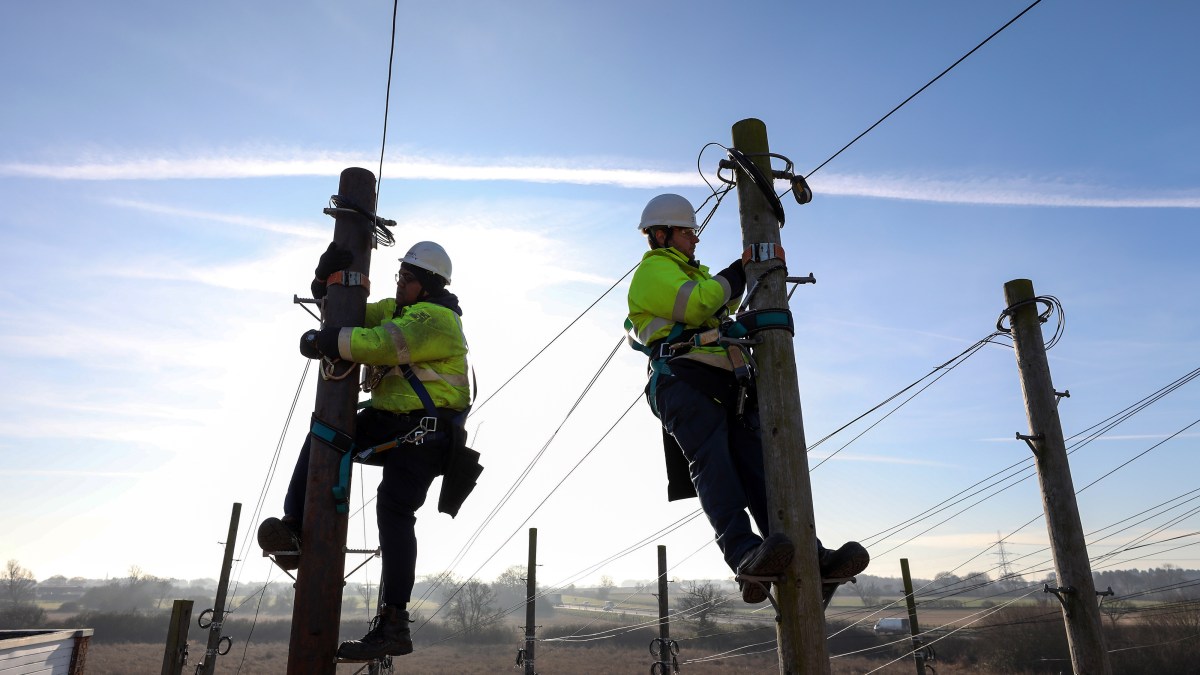It is “too early to call” when BT’s Openreach will stop shedding customers, Britain’s largest broadband network has warned, as it lobbies for a loosening of regulation in the face of rising competition and a shrinking fixed line market.
A downturn in housebuilding, together with a cost of living crisis that has pushed more households to “tether” to their mobile device for internet access, had taken its toll on demand, Katie Milligan, Openreach’s deputy chief executive, said.
The dozens of alternative network providers — or so-called “altnets” — that have sprung up to challenge the dominance of Openreach and Virgin Media O2 in recent years had also added pressure, she said, which made it hard to predict when the losses would bottom-out.
“Until the market really stabilises and we know what the market growth or contraction is we’re not going to call it,” she said.
BT, which has spent billions on rolling out its ultrafast internet network via Openreach, has said it expects to lose about 900,000 broadband lines this financial year, a metric closely watched by investors weighing up the telecommunications group’s ability to monetise its huge investment.
“The whole point of people investing in fixed infrastructure was on the premise that the UK market would continue to grow both in terms of the number of customers adopting broadband but also as a result of housebuilding and growth continuing, which hasn’t happened,” Milligan said, adding that Openreach’s scale could help it to benefit most from a return to growth in the market.
• Indian billionaire increases oversight of BT with seat on board
Allison Kirkby, who was appointed as chief executive of BT at the start of last year, has previously said that most of its losses were customers switching from old copper lines, which meant its “best defence” was in accelerating the upgrade of its network to “full-fibre”, broadband connections that use fibre-optic cables for faster speeds and better reliability.
It is aiming to hit a headline target of delivering full-fibre broadband to 25 million UK premises by the end of next year, from 19 million premises at the end of June.
The group had reached an “inflection point” in its spending and would start to see its free cashflow ramp up, she said last year.
James Ratzer, an analyst at New Street Research, said that the declining market “clearly means that the return on the fibre project is going to be lower for BT than originally expected”, forecasting a continuation of customer losses until at least 2030.
Openreach is urging Ofcom to loosen curbs put in place in 2021, in parts of the country where there is competition, as the watchdog consults on the rules for its next five-year regulatory period.
• TalkTalk’s profits down as it loses 400,000 customers
The restraints, which include limiting prices Openreach can charge retail internet providers such as Sky and TalkTalk, were designed to encourage competition and boost investment in the market.
However, consumers were being “denied the benefits of competition”, said Mark Shurmer, Openreach’s managing director of regulatory affairs, adding: “Prices are higher than they need be and they’re propping up inefficient entry in the market.”
Ofcom has estimated that more than 70 per cent of premises can choose from two or more network providers.
A spokesman for Ofcom said it had “consulted extensively” on proposals to maintain momentum in the fibre rollout, adding: “We will carefully consider the responses we have received from a wide range of organisations before setting out our final decisions early next year.”

